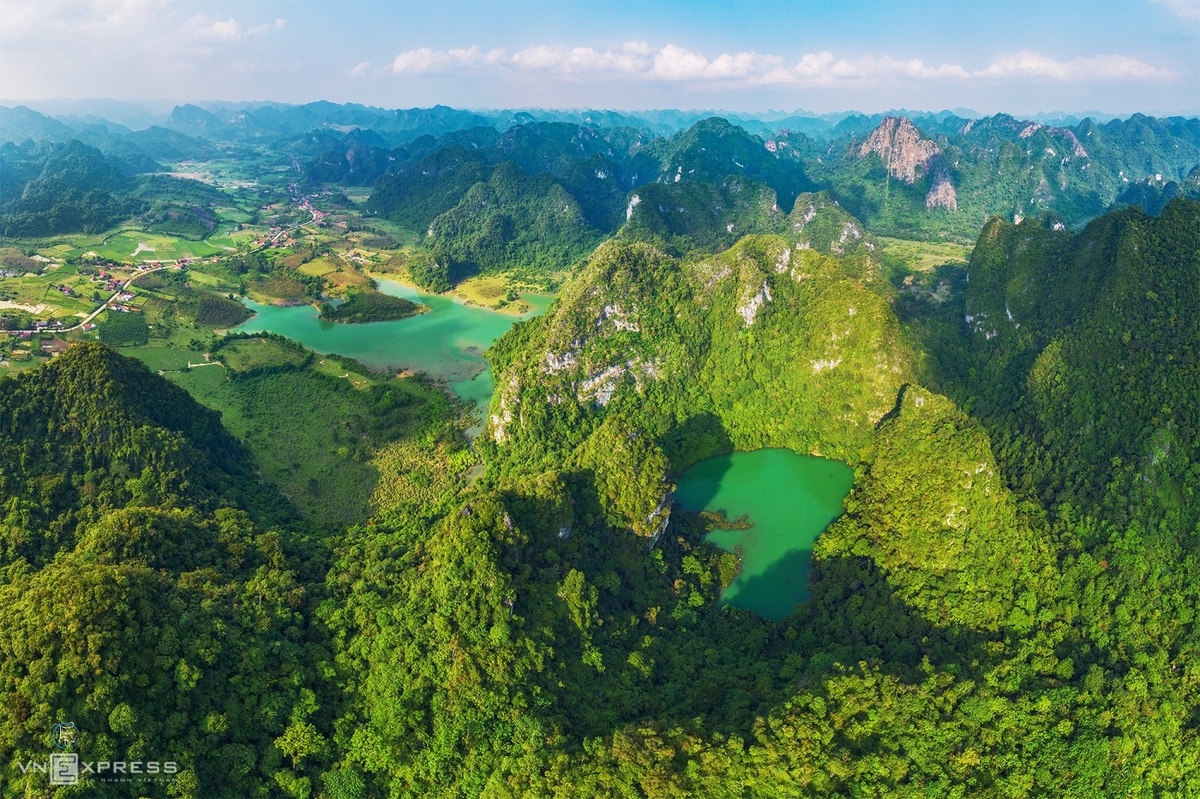
The grasslands of Huu Lien Commune in northern Vietnam's Lang Son Province is a sight for sore eyes, but that's just for starters.
The grasslands of Huu Lien Commune in northern Vietnam's Lang Son Province is a sight for sore eyes, but that’s just for starters.
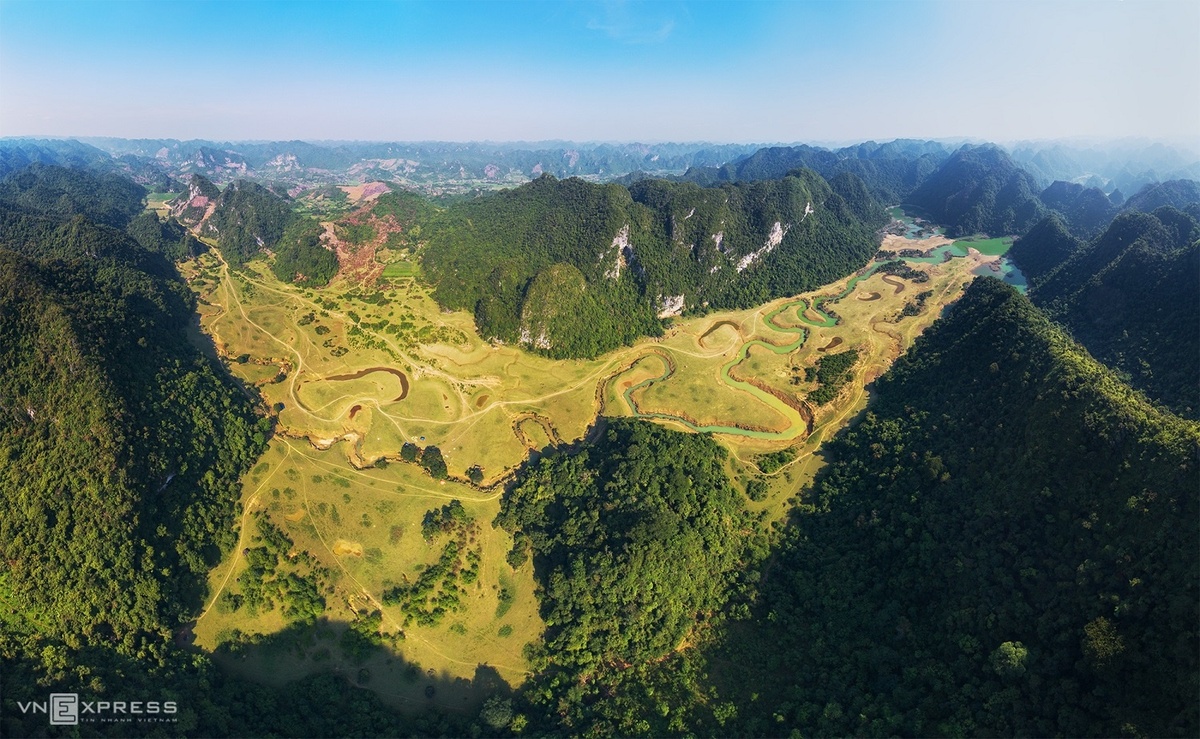 |
| A panoramic view of the Dong Lam Meadow, an ecological area of around 100 hectares in the north of Huu Lien Commune. The place has woken up to its own beauty and offers attractive ecotourism options in villages like Lang Ben, Lang Coc and La Ba. Located about 25 km to the north of Huu Lung District in Lang Son Province, which borders China, and 150 km from Hanoi, Huu Lien has a total area of over 6,000 hectares and a population of more than 3,000 people, including the Tay, Nung, Yao and H'mong ethnic minority communities. The commune captivates with its spectacular limestone hills, undulating vast grasslands, moss-covered waterfalls and emerald lakes. |
 |
| An aerial view of Lang Ben Village and, on the opposite side, Lang Coc Village with the tiled roof houses on stilts typical of Tay and Yao people who have lived here for generations. There are currently more than five homestay stilt houses located 2-3 km from the valley, costing about VND100,000 ($4.3) a person per night. Visitors can enjoy local food specialties, cultural performances, campfires, herbal baths and the services of tour guides and forest guides to explore the area further. |
 |
| Dong Lam Meadow is only 2 km or so from the stilt houses in Lang Ben Village. It stretches languorously between the limestone hills for about 1.5 km, adorned with trails and streams that flow to Dong Lam Lake. In the flooding season, the lake is crowded with people moving about on rafts and fishing with nets. From where one part of Dong Lam Lake ends, tourists can spend an hour to cross a forest road to Lan Lay Village, which has about 26 Yao households. Nestled amidst a dense forest, this place is virtually untouched by modern life. There is no wifi and no electricity. |
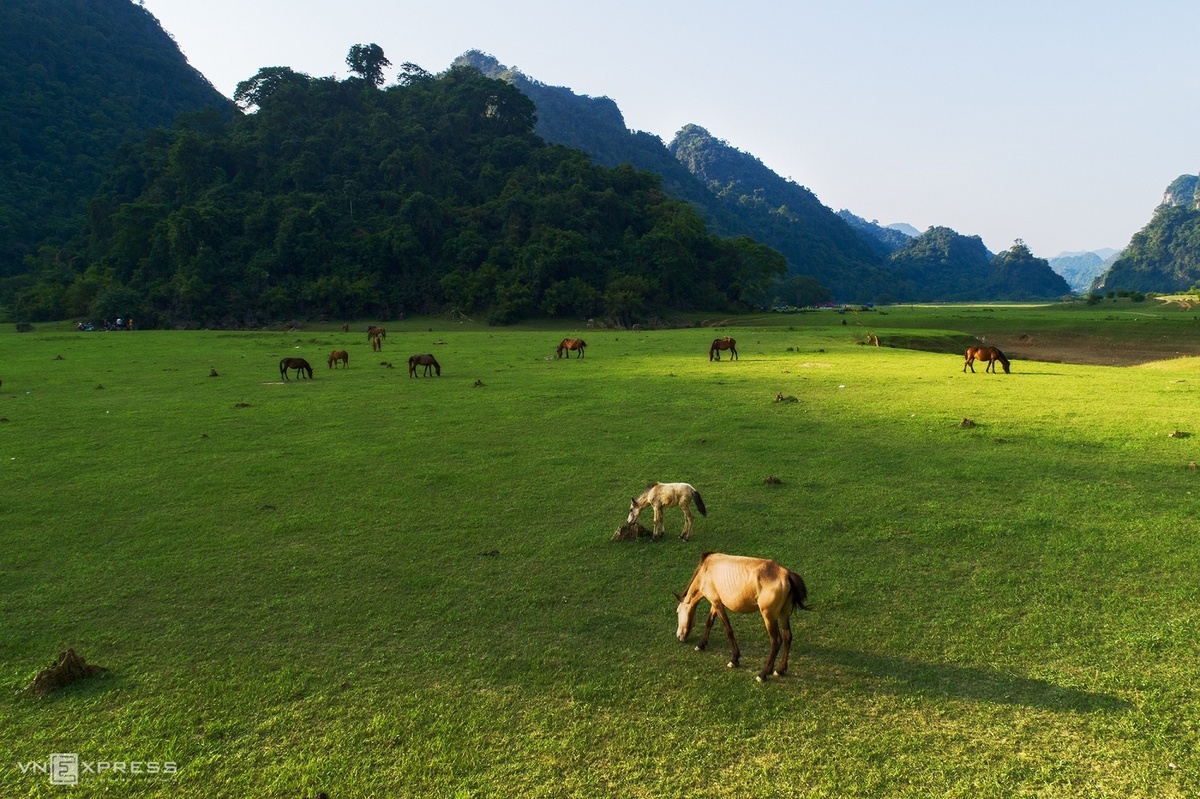 |
| Horses nibble on the green meadow grass during the dry season. These are mostly tamed horses. Visitors can have themselves photographed on the horses and even rent a horse draw carriage to ride around. The large meadow is also used by farmers to raise cattle. |
 |
| The stream flowing through the meadow often runs dry during summer. At this time, the place is highly suitable for organizing picnics and going on adventure trips like mountaineering and other sports. During the rainy season from July to October, the water will flood the meadow to depths of 2-3 m. This is why people don’t practice agriculture here and the grasslands is left pristine. |
 |
| The “graveyard of trees” on the meadow. Apart from the dead trees, a l0 m high fig tree with a large canopy adds to the meadow’s beauty. |
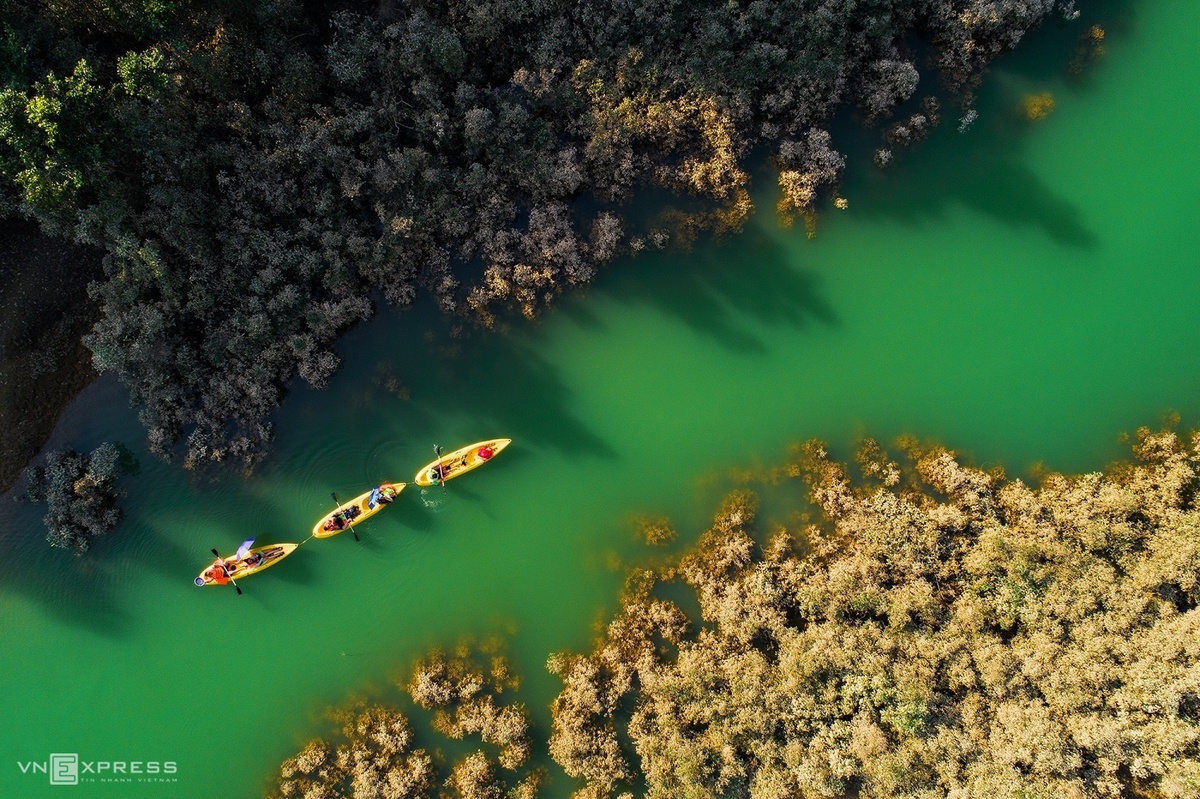 |
| Visitors can enjoy kayaking on the stream flowing through Dong Lam Meadow. To develop tourism, local authorities have built a parking lot about 1 km from the entrance to Dong Lam. Tourists can rent a motorbike taxi to the meadow for VND30,000-40,000 ($1.3-1.7). They can also walk or cycle around the place to enjoy its beautiful scenery. |
 |
| A magnificent view of the limestone hills, Huu Lien Forest, Nong Dung Lake (left) and Mo Ang Lake (right). The 8,293 hectare Huu Lien Forest belongs to the Huu Lien National Forest Reserve, with three subdivisions stretching over three districts: Huu Lung, Chi Lang and Van Quan. The topography of this forest area is shaped like a basin, surrounded by overlapping limestone peaks and ranges. The center consists of hills, villages and grasslands areas. Of late, many visitors, Vietnamese and foreigners, have approached the forest management board for permission to explore the area. |
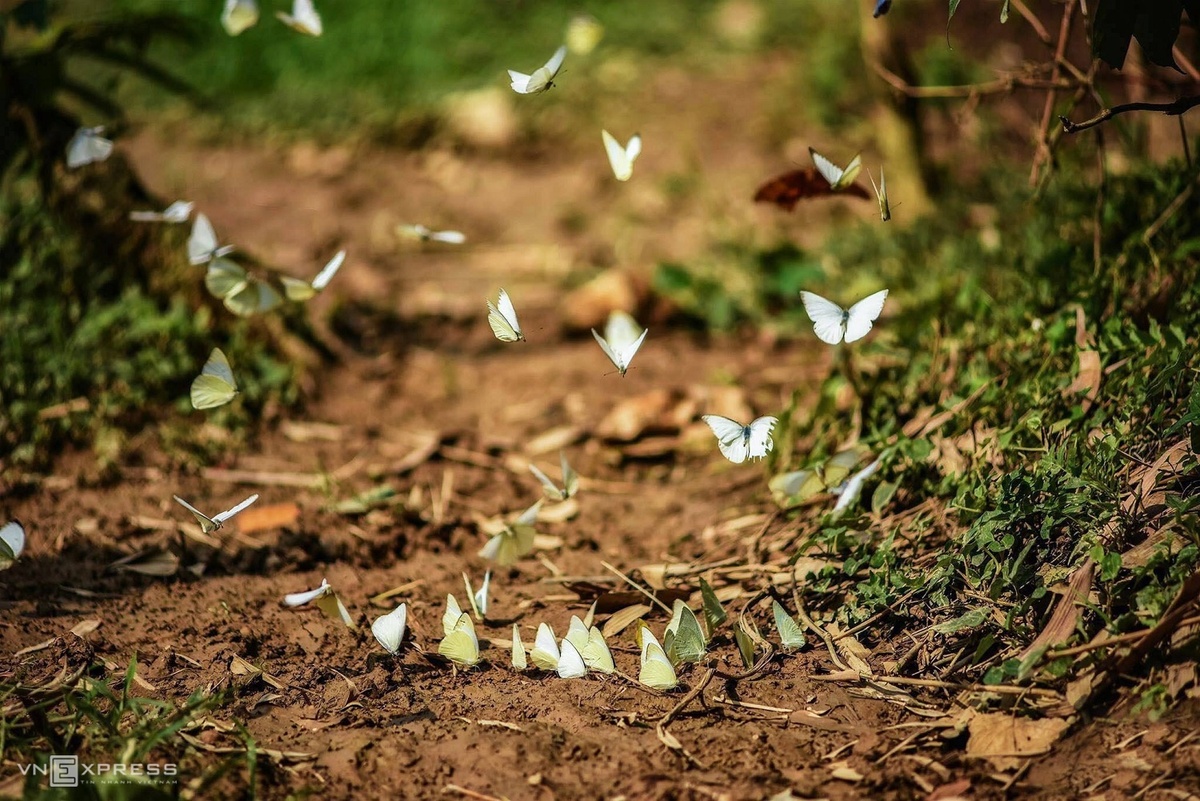 |
| Huu Lien Forest is said to have 776 species of plants and 409 species of animals, including 30 species of rare plants and 61 species of rare animals listed in the Vietnam Red Book. |
 |
| Mo Ang Lake will enthrall visitors with its beauty and quiet as will its sister, Nong Dung Lake that can be reached through a forest trail. Apart from kayaking in these lakes, those who want to experience the area further can ask a homestay facility to help hire a guide to trek through the forest, cross a muddy area and climb boulders to reach Mo Ang Lake. |
 |
| The water from Mo Ang Lake flows along limestone ravines to form the picturesque Khe Dau Waterfall. |
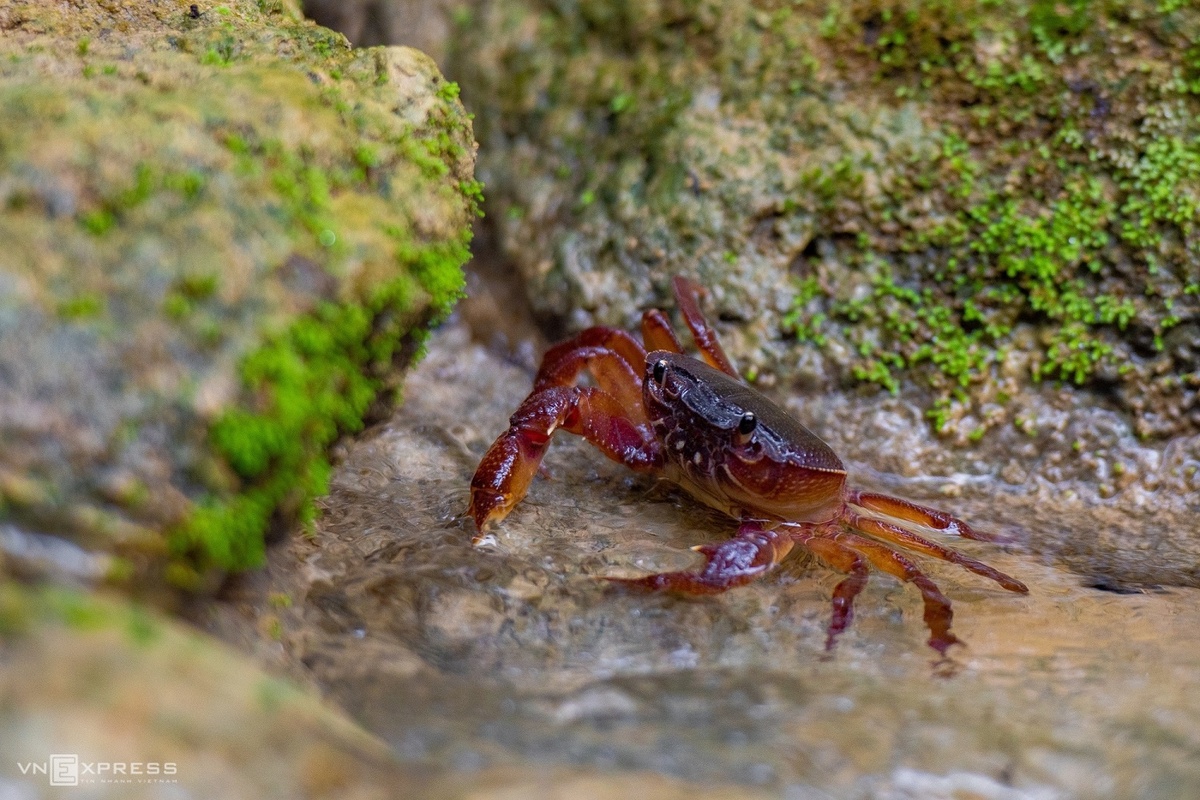 |
| Stone crabs can be found aplenty along the water bodies in the area. Once they are done with their exploration, visitors can enjoy local specialties at the homestay. These include dishes like the roasted duck, the Lang Son roasted pork with Clausena indica leaves, grilled fish, roasted stone crab, boiled mountain snail, sautéed garlic vegetable with galingal, glutinous sticky rice, pumpkin cake and black rice cake. Huu Lien adds to its natural beauty with historical and cultural attractions like the Quy Minh Dai Vuong Church and intangible heritages like the Go Chua festival, pa xoan singing, nha to singing and traditional Vietnamese opera cheo. |
(Source: VNExpress)





